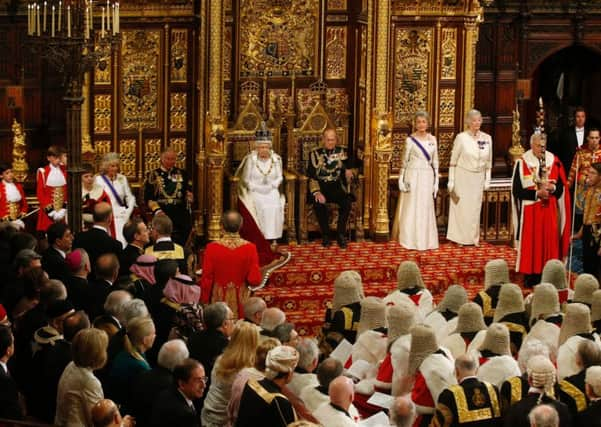Call for reform to boost English MPs' influence in Parliament


The analysis of the controversial English Votes for English Laws (Evel) procedure said it had “not noticeably enhanced England’s voice” in Parliament.
The measures, which were introduced last year, were aimed at addressing the so-called the West Lothian Question and the influence Scottish, Welsh and Northern Irish MPs could potentially have on measures and policies which do not apply in their constituencies.
Advertisement
Hide AdAdvertisement
Hide AdThe Evel process is aimed at ensuring that laws can only be passed if they are backed by a majority of MPs from the nations directly affected by the legislation.
Professor Michael Kenny from Queen Mary University of London (QMUL) said that even with the Evel reforms, MPs from Scottish, Welsh and Northern Irish constituencies could still make life very difficult for Prime Minister Theresa May – including on the terms of a Brexit deal.
A report by Prof Kenny and Daniel Glover from the QMUL’s Mile End Institute suggested that English MPs should have a way of expressing their views apart from giving a veto on new laws.
“The government’s reform effectively conflates expression of England’s voice with its capacity to apply a veto, but parliaments and legislatures fulfil other functions than merely voting on legislation,” the report said.
“During Evel’s first year of operation, its mechanisms have not noticeably enhanced England’s voice.”
Under the “double veto” process, a bill certified by the Speaker as applying only to England, or to England and Wales, must be approved by a majority of MPs from England, or England and Wales, and also the House of Commons as a whole to progress.
But the report said English-only stages are held at the end of a bill’s Commons passage, when most scrutiny and debate has already taken place.
The report finds that there has been almost no interest in these English stages in their current form, with most lasting around two minutes.
Advertisement
Hide AdAdvertisement
Hide AdThe academics recommended that the House of Commons should consider introducing a cross-cutting English affairs select committee as a forum for debating and scrutinising England-only issues.
Prof Kenny said: “So far, this system has been operating out of political sight but Evel may well turn into a headache for Theresa May.
“Because most English MPs are Tories, the current system makes little difference to legislative outcomes.
“But what would happen if a majority in the Commons were to vote down legislation that followed on from a ‘hard Brexit’ deal which only applied to England and had the support of a majority of English MPs?
“And what if measures such as the government’s proposals to introduce more grammar schools in England are blocked by a Commons majority that includes the SNP and other non-English members?
“These rules matter and they could be more flexible, transparent and balanced.”